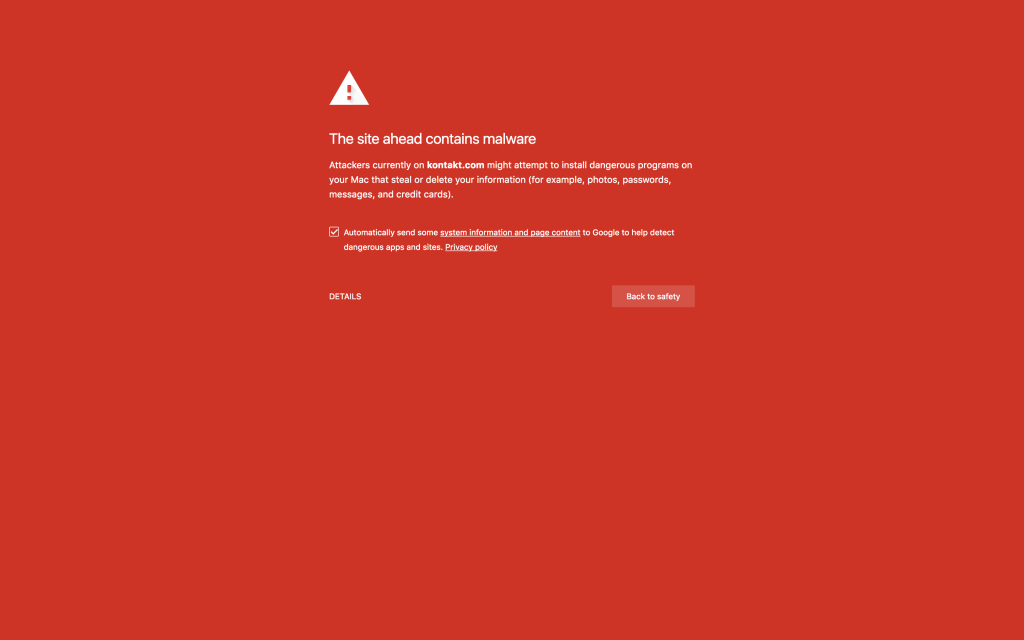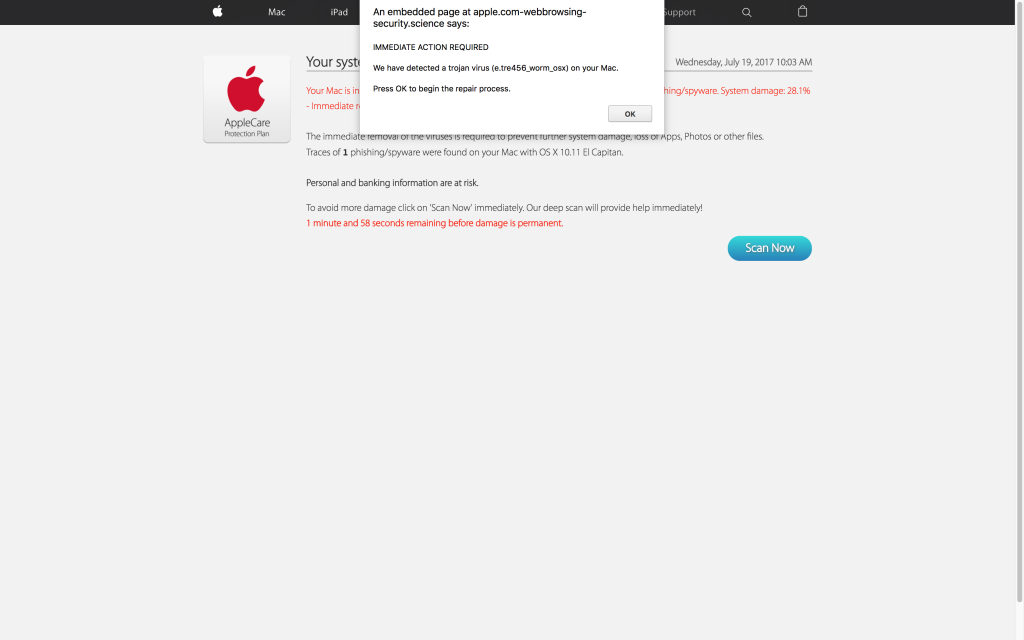This is a topic that I have been vocal about for some time. Since the early incarnation of DMP back in mid 2000’s. The concern was and still is with the potential of domain parking hurting a domain’s reputation, especially parking that utilizes zero-click ads. Zero-click advertising essentially forwards the domain typed into the browser to an advertiser’s landing page which may contain pop-ups, fake warnings of a virus (to get you to install virus-scanning software), etc. This can get a domain to be flagged as unsafe or malware by Google and warn visitors that malicious software will be installed if they visit it.
Just a moment ago, I have encountered a current real-life example of a domain that has its reputation damaged by being parked at one of the mainstream parking providers. How I came across the domain was by visiting a legitimate website that looked very professional but was on a dot IO domain. Being naturally curious, I wondered what was on the dot COM version of the domain. This is the warning message that appeared:

Now, if a potential buyer sees that warning when visiting the domain, what are the chances that she or he would want to pursue any negotiation. The impression is that the owner of this domain is a malicious hacker, or attacker as is described in the warning, trying to steal identities.
I don’t recommend you to ignore the warning and click through anyways, but for the sake of this piece I clicked through to the site and this is what appeared:

This is a landing page for a well-known virus scanner for Mac computers that is not recommended to download, and for good reasons. It actually can make your Mac worse, not better. The Web is full of ads of all sorts for this software. This specific page obviously tries to fool you into thinking it is an official Apple page by copying the design and including “apple.com” in the long domain on the dot SCIENCE nTLD. The page also falsely presents itself as a system error message direct from your computer and falsely warns that there is a virus installed. Additionally to get rid of the pop-up, the only option is OK, to agree to begin the “repair process”. There is no option to cancel. All aspects of a potentially malicious, or malware, Web page are present.
This is an example of a parked domain utilizing zero-click advertising that is being utilized more often than you might think by mainstream parking services. It will damage the reputation for the domain by being flagged as malware. To remove the flag there is a process but it takes time and effort that could otherwise be avoided. Additionally, a legitimate business will want to distance itself as much as possible from any malware or identity theft allegations. So the question is whether a malware flagged domain is forever stained in the minds of potential end-users.



By reading the title, I thought you mean “domain parking” alone is a bad idea. After reading the article, it turns out that what you mean is “domain parking with zero-click advertising”.
Zero-click advertising is utilized by mainstream domain parking companies which you may not be aware are being placed on your parked domains. However, regular parking pages can also potentially increase the spam score for domains even if they are not flagged for spamware.
“Zero-click advertising” means redirecting visitors immediately to other pages without them clicking any link, hence the name “zero-click”.
The things that are being placed on parked domains, as you mentioned, is called “PPC links”, which is not zero-click advertising.
You are correct, Ethan. Parking companies rotate between PPC and zero-click ads. So your domains may display PPC ad pages and then later zero-click without your knowledge. As already stated, even PPC pages can increase the spam score for your domains.
I didn’t know that parking companies would do that. Anyway, thanks for the info.